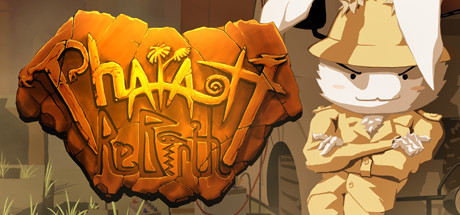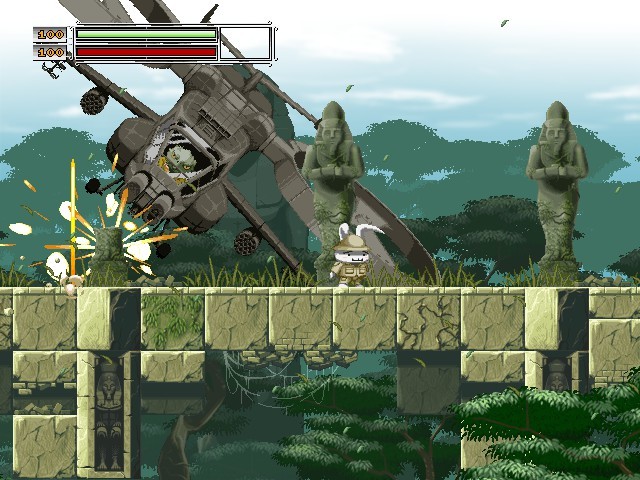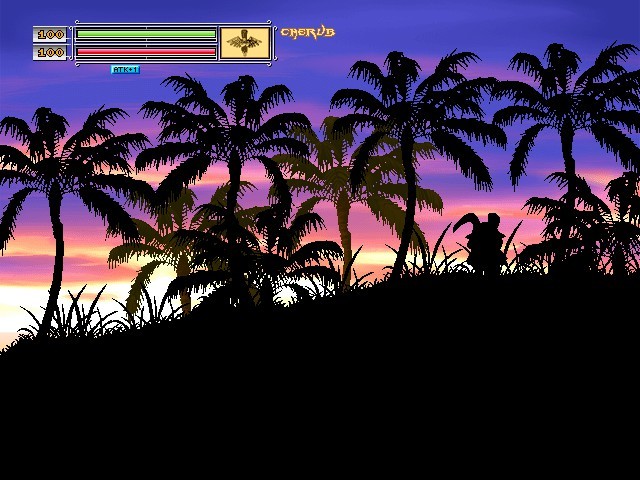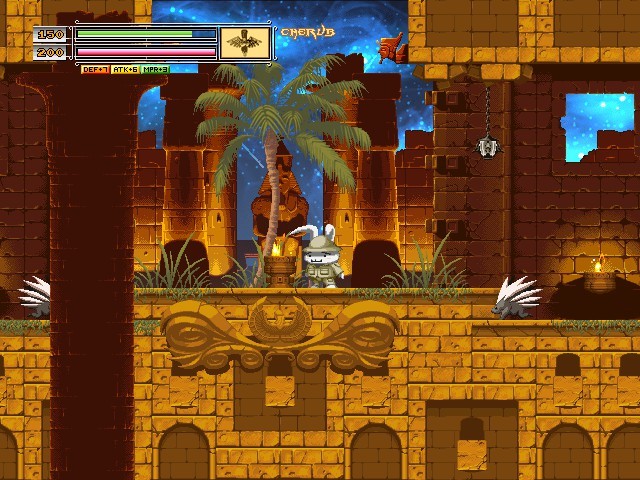Indie Game of the Week 50: Pharaoh ReBirth+
By Mento 0 Comments

We're seeing out 2017 with, you guessed it, another Indie spacewhipper. However, Pharaoh ReBirth+ is the rare case of a Japanese doujin game: what that country usually calls their smaller, self-published Indie games as a blanket term, but literally translates to "fan game". With all the Indie games I've played this year, I'm realizing there's something modest if perhaps a little reductive about the term "fan game" - you see, while the term can and often does refer to games made with licensed characters that the creator almost certainly does not have permission to use, which are subsequently released in a low-key and non-financially-motivated capacity to escape the notice of the copyright holders, the Japanese also attach the term to games that don't so much venerate specific characters and settings - like Pokémon or Dragon Ball Z - but to types of game.
With spacewhippers in particular, the idea is that these developers are usually homaging the Metroids and Castlevanias that (for normal people, at least) lend the genre its name, as well as the 8-bit/16-bit/32-bit 2D eras they hail from. Pharaoh Rebirth is comprised of several of these homages, from Castlevania: Symphony of the Night (or, I suppose, Aria of Sorrow given that two of the major characters are a handsome middle-aged bearded man with a name close to Belmont and an androgynous black-haired man in a sharp suit who is clearly older than he looks) to Metal Gear Solid (you have a bespectacled hacker partner who is constantly radioing in, and are at one point contacted by the United States Secretary of Defense about an illegal satellite weapon and it's as dumb as it sounds) to Uncharted to even other famous doujin games like La-Mulana and Cave Story.

As famed archaeologist Dr. Jonathan Banfield, who was transformed into a rabbit at some point in the past (he doesn't like to talk about it), the player takes part in a series of spacewhipper levels - some of which have areas blocked off until the player has the right abilities - and frequently takes diversions into more overtly action fare, like a sequence where the player uses a jeep with powerful hydraulics to complete what is essentially a minecart level, or runs across a speeding train while carriages are being separated. The ambition for a 2D platformer game like this is impressive, as is the emphasis on a (occasionally poorly localized) story full of cutscenes and silly jokes.
I particularly like the game's look: it feels like when pixel artists create game art they limit themselves to an 8-bit or 16-bit resolution and palette to maintain some sense of fidelity to the old systems they're referencing, but Pharaoh takes full advantage of all 307,200 pixels in its standard 640x480 resolution (which, fortunately, can be up-scaled without losing much) to create these wonderfully detailed environments, especially when you have a full view of its several layers of parallax-scrolling backgrounds. I particularly liked the silhouetted look of the Nile level at night, and how the game messes with you by hiding enemies in its dark shapes. The animations for characters, whether they're bearing down on you with a laser beam attack or idly flexing their fingers, look fantastic too.

But even when the game isn't showing off with cinematic set-pieces or pixel eye candy, there's still a solid platforming experience to be found underneath. The drip-feed of new abilities are accompanied with requisite selections of rooms and puzzles that require that ability to proceed, and while they're nothing you haven't seen before - hookshot, double-jump, slide - the game finds ample use for all of them, and boosts them further with special "collection items": items which sometimes serve no purpose but to fill out a grid of collectibles to find, but more often give you a slight stat boost or modify one of your existing abilities or "sub-weapons" to have slightly more utility, such as using the slide in mid-air. The sub-weapons in particular give you plenty of options for combat, whether you're fighting through regular enemies or one of the game's wonderful boss fights, and since your mana regenerates constantly and refills at save points there's no reason not to go nuts. My favorites are either the handfuls of holy soot, which blankets the screen to hit all enemies but also reveals any secret walls, or the spirit of Jonathan's ancestor who appears behind the protagonist like a Jojo-esque Stand and will fly over and beat the crap out of any nearby enemy until the player's mana gives out.
But what struck me most about Pharaoh Rebirth compared to its other doujin brethren is just how reasonable it is. It doesn't have a part where you can permanently screw up a side-quest and let an important character die, there's never a point where you're wandering around completely lost as to what to do or where to go next, and there's certainly not a whole lot of bullet-hell nonsense being thrown your way. It feels a bit like when I played Xenoblade Chronicles or Metal Gear Solid V for the first time, where I was (with some prejudice perhaps) slightly bracing myself for a lack of user-friendliness and convenience compared to other modern open-world games due to Japan's often stubborn adherence to doing things its own way (see also: most of Nintendo's decisions about its online functionality), and instead discovered the opposite: that they were as deferential to games made all over the globe as they were to those from their own country, and are perhaps the best - or at least you could feasibly make that argument without any eye-rolling - examples of their genre from the evident amount of consideration that went into developing the systems and understanding the needs and wants of the modern, slightly more impatient player.

Pharaoh Rebirth isn't just some odd little Japanese browser game remaster that someone threw onto Steam, but one that fully embraces the decades of work that a global community of Indie developers have put into the genre since its mainstream decline while retaining an inherently Japanese look and sensibility - cute character designs, a bananas plot, and a vein of referential and self-effacing humor - with the combined result forming one of the better Indie spacewhippers commercially available.
Rating: 5 out of 5.
| < Back to 49: Firewatch | > Forward to 51: The Wolf Among Us |
